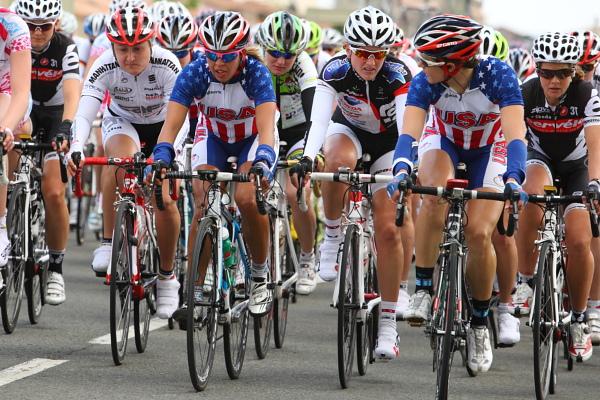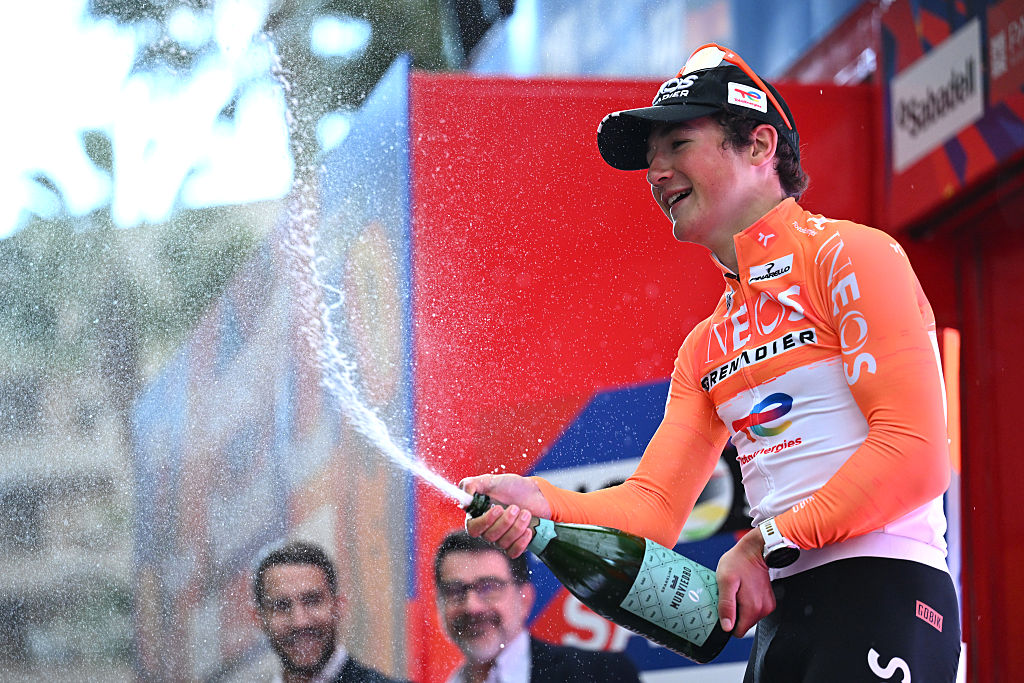Carmen Small to transition into sport director role at Virtu Pro-Vélo Concept
American's dual role in Danish team part of broader 'beyond bike racing' concept
The latest race content, interviews, features, reviews and expert buying guides, direct to your inbox!
You are now subscribed
Your newsletter sign-up was successful
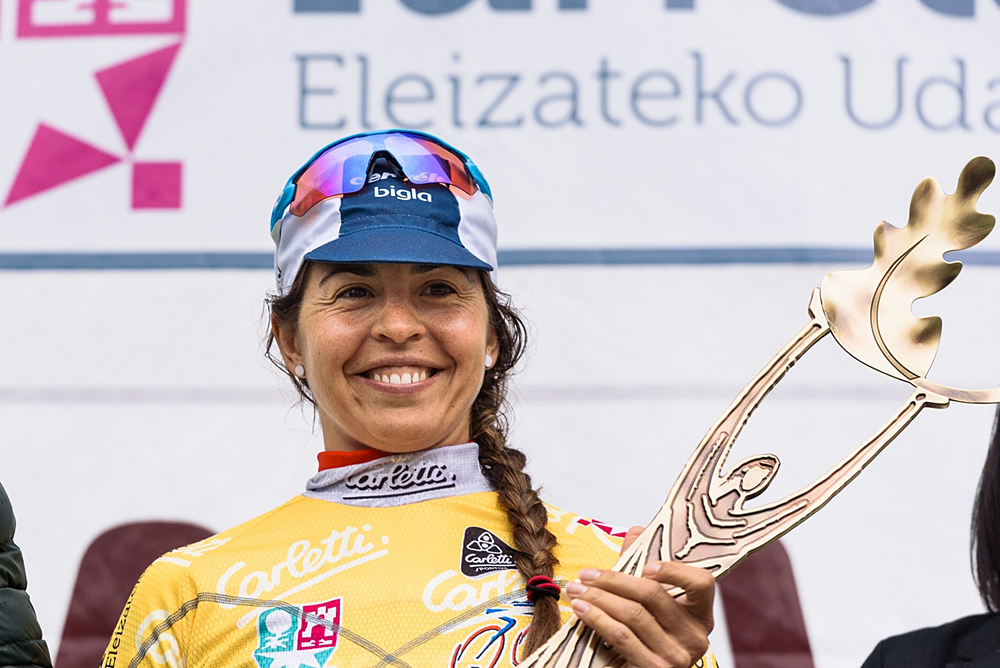
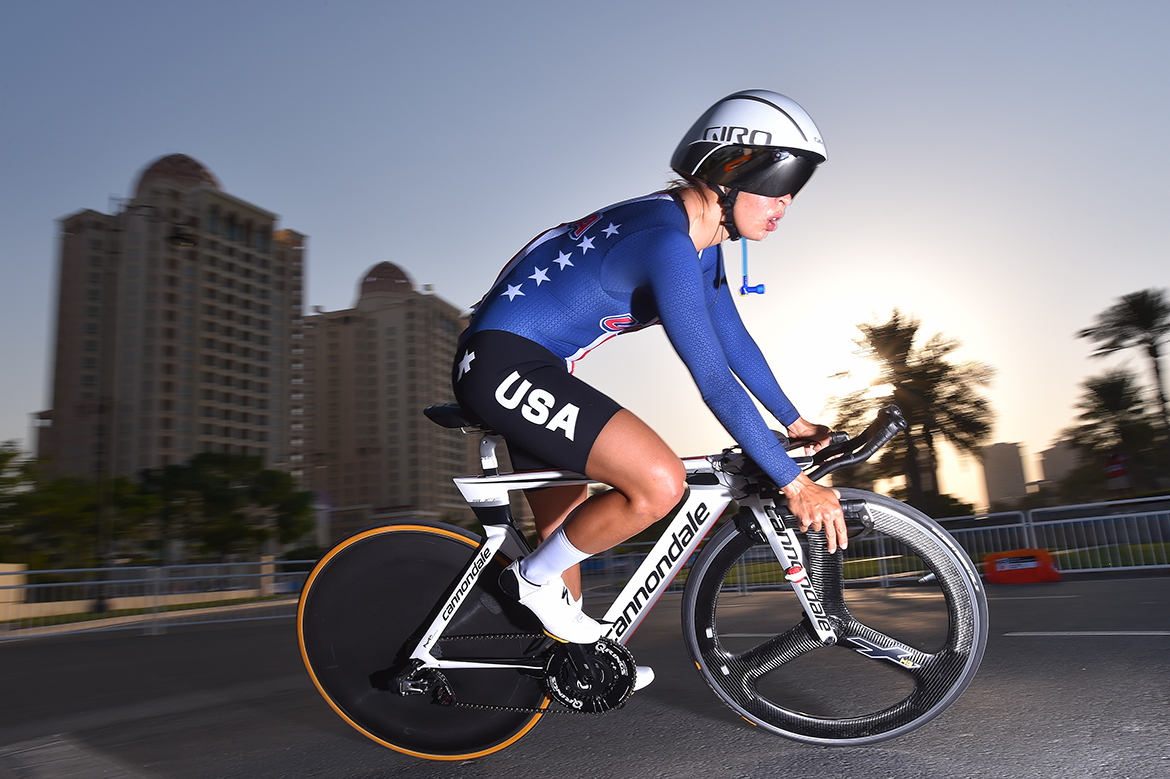
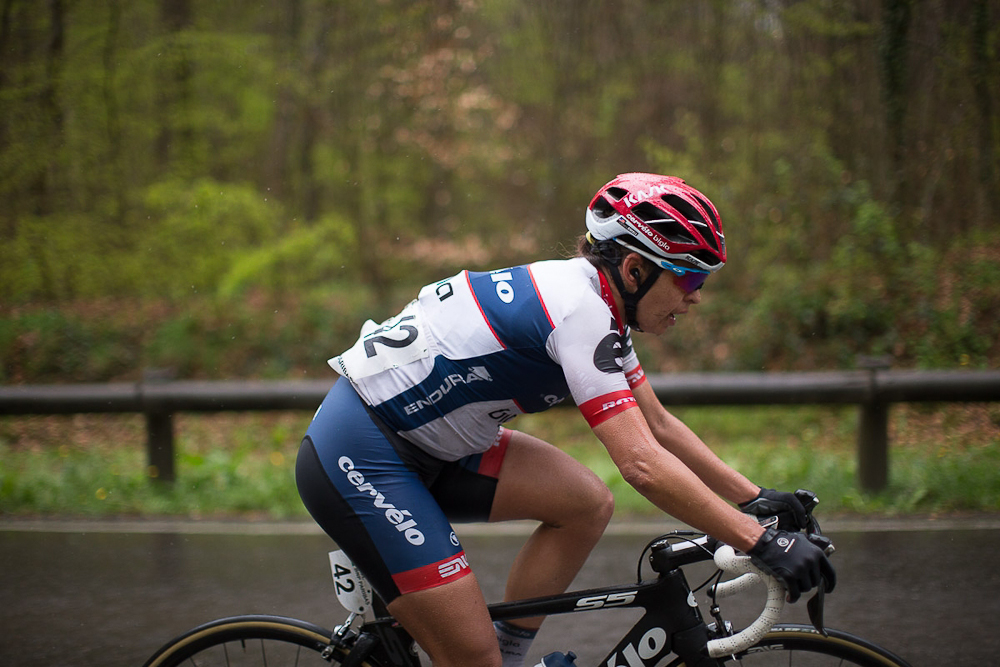
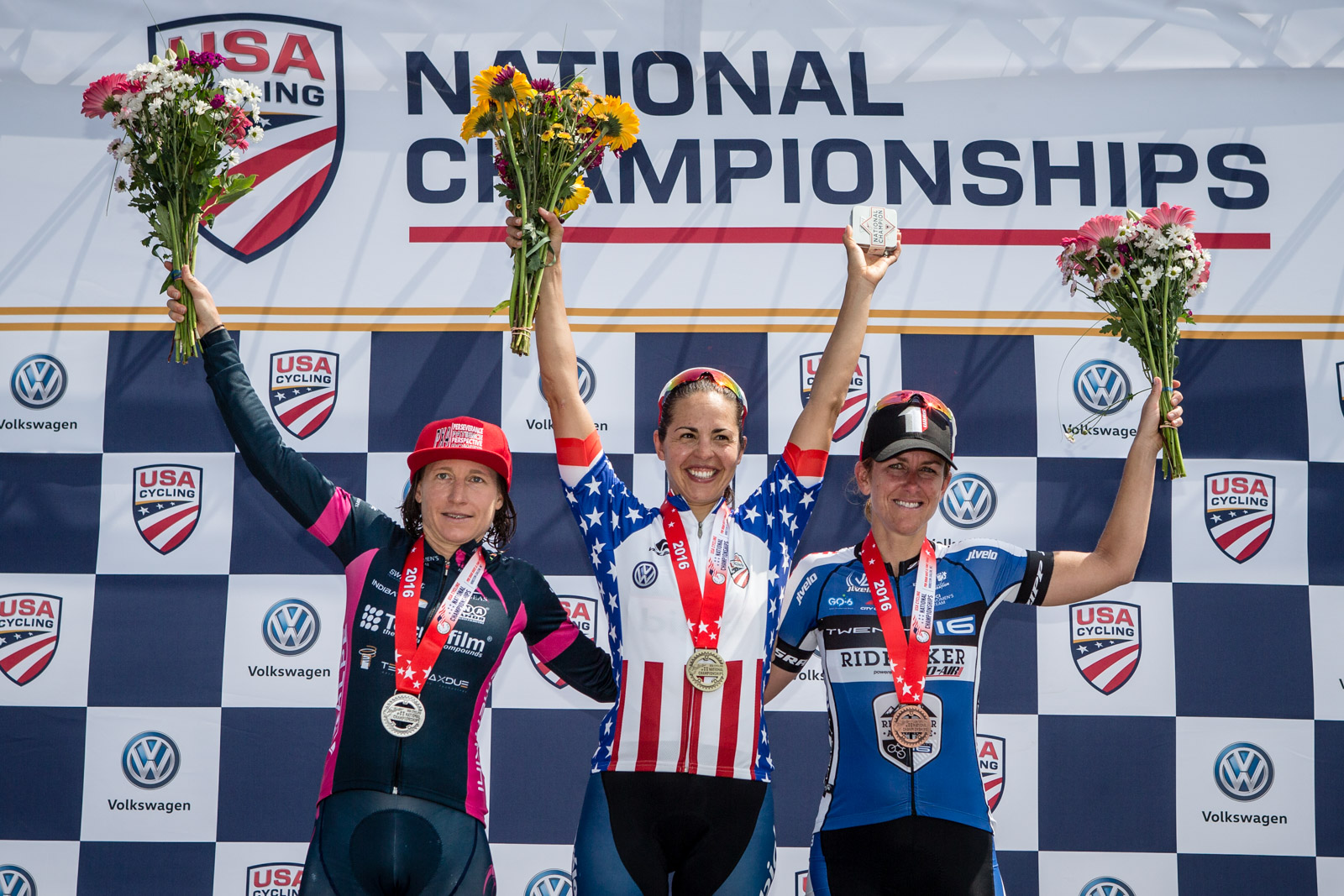
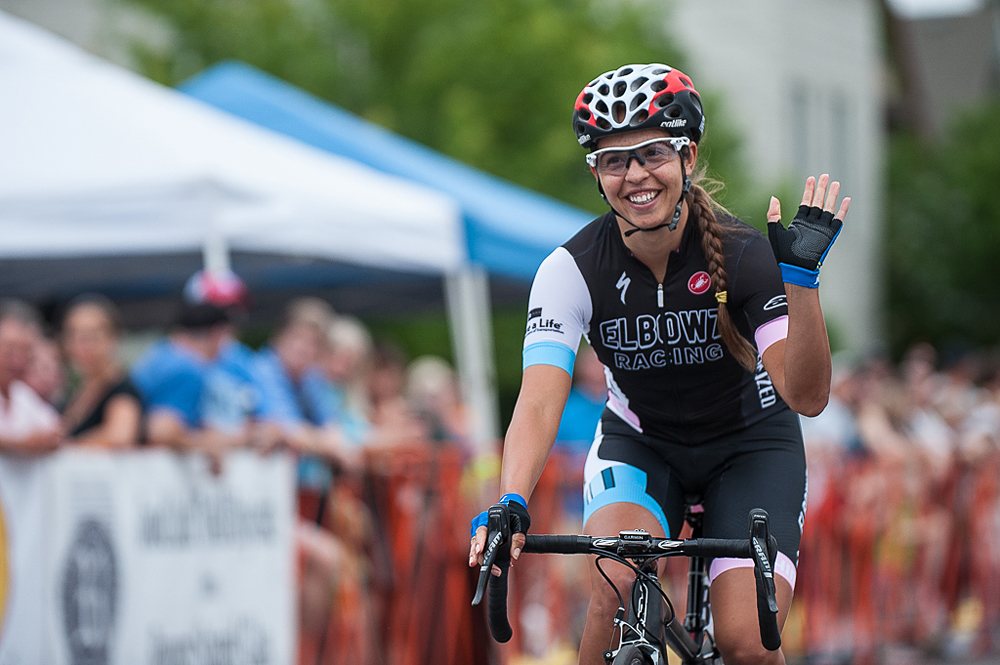
US time trial champion Carmen Small had been thinking about retiring from professional cycling when Bo Handberg Madsen approached her in early October with a proposition that piqued her interest. Madsen was looking for an experienced rider to fill a role as mentor for his young Danish squad, and he thought Small might fit the bill.
"The conversation sparked my interest because it's not a traditional team," Small told Cyclingnews. "This isn't a team with a bunch of really strong riders that will be driven only by results. It's a building program with an eye toward the future. Women's development is so important right now, and I wanted to be a part of that."
Small's role extends beyond that of a two-wheeled mentor. A recent graduate of the UCI Sport Directors eight-day program, Small is certified as a directeur sportif. The 2017 season will be one of transition for Small as she passes down the tools of her current trade and begins to learn a new one.
"The key to this arrangement is that I get to direct some of the races this year already," said Small. "That was really influential to my decision. It's intimidating to imagine jumping into a director's position on a WorldTour level without experience. I know as a rider what I want out of a director, but I don't actually know what a director does. This gives me the opportunity to learn while I'm teaching, to get my feet wet, to have a slow transition."
Beyond racing
The experience Team Virtu Pro-VéloConcept will offer Small is part of a broader concept that the organisation hopes to use with all of its athletes. The new Riis-Seier Project, which manages both the men's team and the women's team, extends beyond bike racing.
"The project is other things than cycling," Madsen explained to Cyclingnews. "The teams are only a part of it. There are a lot of different things building up around the team. There is the Virtue fitness bike. They have fitness training apps. There is an elite testing center. There are all kinds of product and merchandise.
The latest race content, interviews, features, reviews and expert buying guides, direct to your inbox!
"We will have a cycling academy in Lucca this summer, and we're starting another one in Mallorca in early March and April," Madsen said. “Each week, one rider from the women's team and one rider from the men's team will go to Mallorca to help at the academy.
"We want to educate the riders and to involve them with all aspects of the project that they are interested in," Madsen added. "Some of them might be interested in coaching or training, some of them may be interested in travel, some of them may like the management aspect. Whatever it is that is interesting to them, everything in cycling or sport, we will help them get involved and get an education so they have more possibilities later on."
It's a concept that resonated with Small as she began to contemplate wrapping up a professional cycling career that has spanned a decade. Having come to the sport later in life, Small, a lifelong elite athlete, has a professional background. She quit teaching high school math in 2008 to take several trips to Europe with the US national team. She signed her first professional contract with Aaron's a year later.
Unlike many of her soon-to-be young teammates, Small knows a lot about adult life beyond sport. Despite the depth of her past experiences, even Small struggled with the idea of retirement from the sport.
"I was a bit lost, to be honest," Small added. "I didn't know what I wanted to do. I didn't necessarily want to walk away from the sport. I wanted to continue, but I didn't know how – and then Bo approached me.
"We started talking, and I brought up the director's course and what I wanted to do to stay in the sport," Small continued. "He said: ‘You know, we're going to be looking for a second director the following year. I'd love for you to come in the car with me for some races, to direct some races this year.' It turned out to be a perfect fit."
Small isn't the only one expressing that sentiment. Madsen has indicated he considers signing Small to be a major coup for his young team. The pair have spoken for "hours and hours" on the phone, said Madsen, about the long-term objectives for this project.
"There are two different things were talking about here," said Madsen. "There's the jump up to the big league from the junior level to the senior level where riders get their asses kicked. And it's what can we do to make that transition easier? What can we do to help them prepare for that jump? How can we help them adjust from being a winner to fighting just to finish a race?
"At the same time that these riders are making the transition from juniors to seniors, they're also making other huge life choices, at least in Denmark," said Madsen. Choosing a university education or trade precludes continuing racing, he added. "They don't have the time to put in the training hours and travel around the world. And there's something we can do about that."
The programme includes education opportunities that allow riders to become professionals and prepare for life after sport.
"We hope that they can have 10-15 years as a professional cyclist, maybe more, and then be ready to do something after cycling," Madsen said.
While both the men and women of Team Virtu Pro-VéloConcept can take advantage of this set-up, Madsen believes the women's team will benefit most obviously from this model because of the large wage gap exisits between men's cycling and women's cycling.
"The men can more or less go for it," said Madsen. "A rider in the top 100 in the WorldTour will make a good living and will have savings. If you're a top 100 rider in the Women's WorldTour ... you have to have something else on the side or someone else that will support you unless you're one of the very top riders. We all hope that changes in the future, but that's the reality right now.
"We have to make it so that they can live off cycling but they're not going to make so much that they can put money aside," Madsen added.
Laying the foundation in year one
Both Madsen and Small are well-aware that a project of this scope takes time. While they're excited about the long game, their current focus is squarely on the immediate future. And they both agree that step one is fostering a team spirit that will serve as the heart of the project it grows.
"I want to see cooperation between the riders so that they work for each," Madsen. "That's my number one priority. It's been a problem for us in the past in some ways. Last year, we had only Danish riders, and they were all used to competing against each other. They had been in competition against each other since they were 13. And now we tell them: 'You have to work together for one of you to win.' And that was hard for them at the beginning.
"They showed by the end of the spring that they were willing to sacrifice for each other," said Madsen. "I want to see that sooner this year, and I think it will be easier with Carmen and Sara [Mustonen]."
"I'm really excited to step into this role as a mentor," Small added. "It's not always easy for a director to guide the riders in a race because they're not in the race to see what's happening as it all unfolds. Bo can use me as this kind of in-between. I can give him feedback on riders, and I can give riders feedback in races to help them learn. I think it's really valuable to have a rider that can do that. I also think it's going to be a role I really enjoy. How can I develop these young riders? How can I help this team grow?"
It's an apt role for Small, one that sees her coming full-circle. The high school math teacher turned professional cyclist will now turn her attention to riders only a few years older than her former students. In nurturing the development of her new teammates, Small is actively assuming responsibility for her own career transition – a transition made possible in this way only because of Team Virtu Pro-VéloConcept's commitment to preparing riders for life beyond the peloton.
"It's hard to leave the sport or even move into a new role in the sport," said Small. "I've been doing this for ten years now, so I think it's totally normal to feel unsure about how to move forward. For me, this is the perfect transition out of my career as a rider and into a different career path."
